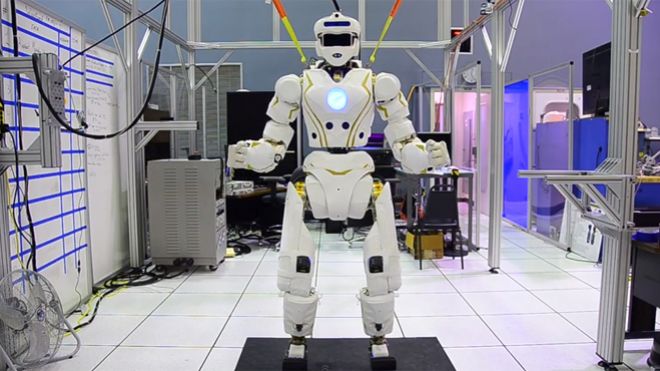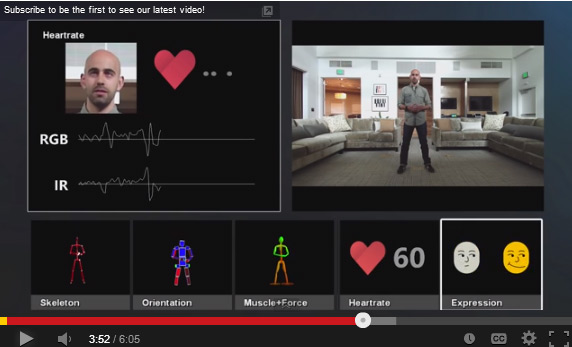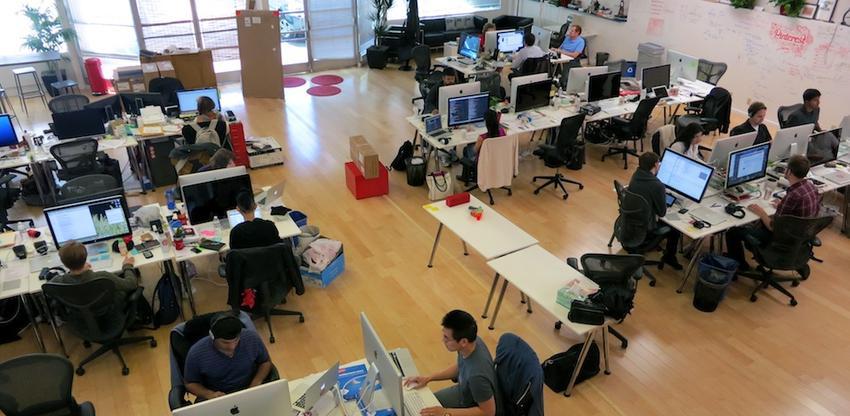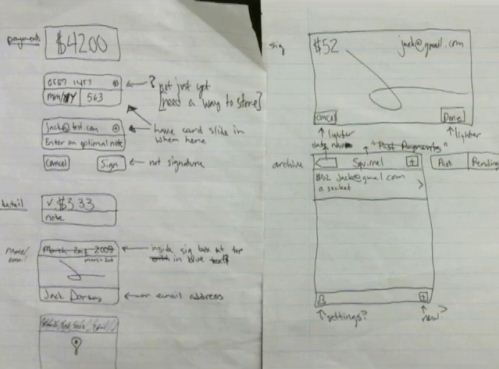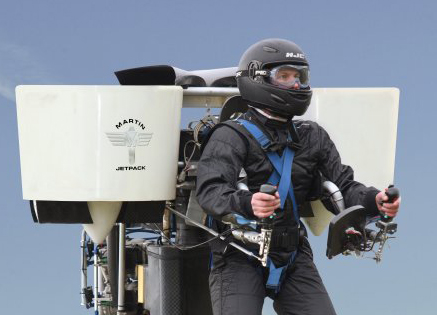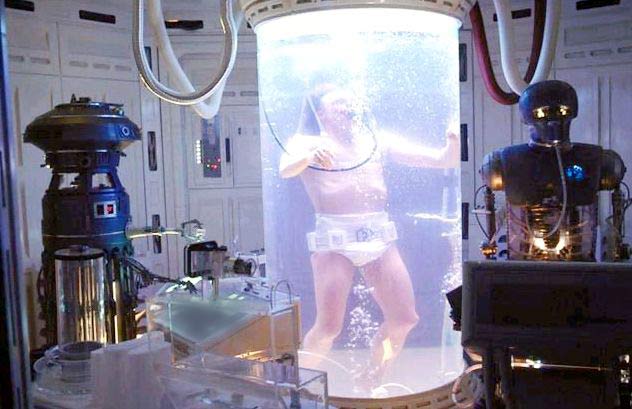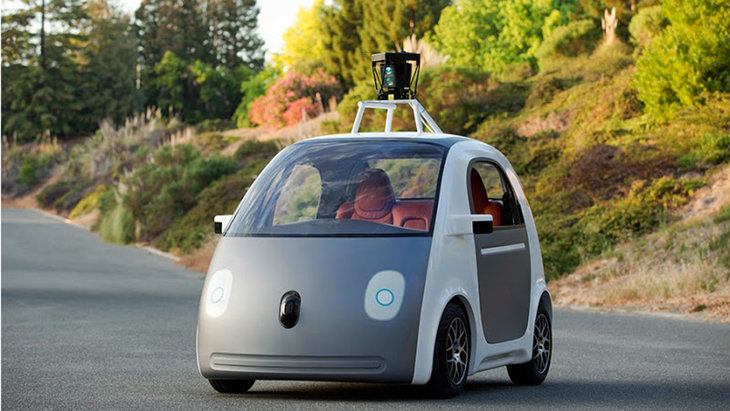$6B Mars Mission Will Be Corporately Funded, Astronauts Could Be Chosen by Reality TV Competition??
In Hollywood films, James Cameron & other sci-fi visionaries, always showed that space travel & planetary colonization would be controlled by huge corporations not NASA. In a prediction that was spot on, today a private company announced that they are taking over the reigns of the Manned Mars Mission, and have plans to turn the mission into the biggest Reality TV, marketing event of all time.
This is ‘Mars One.’
Contestants from around the globe duke it out to become the first humans on Mars. Their life stories are inspiring; their training is fierce, and around every corner is another dramatic love story. Which four will win the chance to settle the Red Planet? It’s up to you, Earth.
It sounds like a pitch for the next scripted network reality show, but it’s not too far from the truth. Netherlands-based company ‘Mars One’ is serious about colonizing another planet, and this week it launched the application process to find the astronauts who will land on Mars on April 22, 2023.
But behind its imaginative founder and board of accomplished scientists and engineers, ‘Mars One’ is a marketing company — and a good one at that.
The Mars One Show
‘Mars One’ will not create new technologies for its mission. Instead, it will rely on existing research from federal space agencies and financing from private companies. Most recently it inked a deal with Paragon to design its life-support systems and ‘Mars One’ founder Bas Lansdorp openly admits to courting SpaceX and other private technology firms to launch his plan.
Lansdorp predicts the mission will cost $6 billion. Mars One, which maintains that it’s a non-profit entity, won’t rely on federal funding. Its business plan hinges on big advertising. It will televise the 5-year process — from astronaut selection and training, to launch, landing and Martian living.
“[Six billion] sounds like a lot — and it is a lot — but imagine what will happen when the first people land on Mars. Literally every person on the globe will want to see it,” Lansdorp said in Mars One’s first press conference on Monday.
Lansdorp founded ‘Mars One’ after seeing Olympic Games revenues. “Four billion dollars for four weeks, just because the world is watching,” he said. (Editor’s Note: Figures for last summer’s Games are not yet available, but the International Olympic Committee pulled in $851 million in broadcast revenue in 2008.)
“[In 10 years], 4 billion people will have an Internet connection, and it will be the largest audience ever, far larger than the Olympic Games,” Lansdorp said.
While it may sound far-fetched, Lansdorp has a point.
Ask anyone older than 45, and they can tell you exactly where they were when man landed on the moon: in front of a TV screen.
Ask anyone older than 45, and they can tell you exactly where they were when man landed on the moon: in front of a TV screen. If a manned Mars launch does happen, it will no doubt be the most-watched program in history, and advertisers will want a piece.
However Lansdorp isn’t banking on one 10-minute live broadcast of a Mars landing. He’s focused on the personal stories leading up to that launch, starting with the astronaut selection process in which prospective settlers’ minute-long application videos will be publicly available online.
After a non-televised round of medical clearance, applicants will move on to round three: a televised national competition in which they will have to prove they are the right candidate to represent their respective country. How will Lansdorp guarantee you’ll watch? He’ll let you select the applicant who will move on to the final, international round.
The Perfect Mars Astronaut Applicant
‘Mars One’ only has two true requirements for applicants: They must be 18 years old and willing to live out their lives on another planet. But with so much riding on advertising revenue, you can bet the selected astronauts will have marketable personalities. In fact, one of the top questions applicants must answer in round one’s video submission is about their sense of humor.
The ‘Mars One’ show could take on a variety of formats — a PBS-esque documentary, a cut-throat competition like Survivor or a ratings-booster game like The Amazing Race, to name a few.
“There are many stories you can tell around this mission,” Lansdorp said.
“It will be all types of programming, and it will be determined by what people here on Earth want.”
“It will be all types of programming, and it will be determined by what people here on Earth want.”
While Lansdorp says he’s open to different content concepts, his influences may indicate his ideal programming plans. In the very early stages of Mars One planning, Lansdorp sought outBig Brother co-creator Paul Römer for advice on putting together a project that would attract public interest and media investment.
Lansdorp briefly recounted a conversation in which Römer assured him that ‘Mars One’s’ selling point would be the public’s interaction.
“He told me, ‘This is not about the first footstep and first flag. This is a human mission. These are humans selected by us […] You will participate in the experience. That is why it will remain interesting for a long time,'” Lansdorp said.
According to Lansdorp, Römer also sees an opportunity in “group dynamics” among the astronauts and how they will behave when “things go wrong.” People are drawn to real-life drama and conflict — a signature component of Big Brother and other successful reality shows.
“We have discussed with media experts, and they are absolutely convinced that people will watch this,” Lansdorp said.
‘Mars One’s’ major revenue will come from the 2022 and 2023 broadcasts. It will use televised events over the next year to convince future advertisers to fill in that nine-year funding gap. However, the show could take on an entirely different format once astronauts land. They’ll be alone on another planet — programming style will be up to them. Sponsors won’t have a say from 140 million miles away.
“If they don’t like it, they can put a piece of duct tape over the camera, and we cannot do anything about it,” Lansdorp said.
And that’s the riskiest part of this entire mission. While ‘Mars One’ can account for every technical and financial aspect, the human element is impossible to quantify. But if this far-fetched mission does succeed, there are two men and two women out there who will bring in billions and perhaps be the most famous faces of all time.
For his part, the highly ambitious Lansdorp will watch from the sidelines here on Earth. “I have a really nice girlfriend who doesn’t want to come with me, so I will stay here.”








